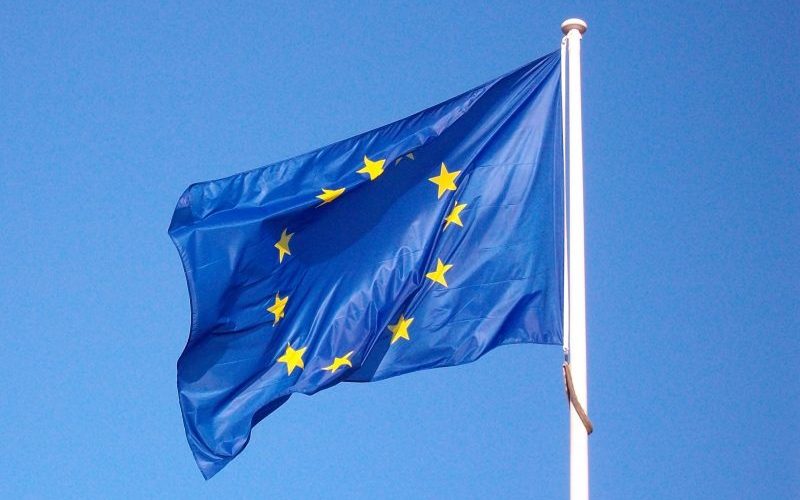Background – The 2004 EU Enlargement and its democratisation agenda
For decades, the European Union (EU) has played an essential role in democratising the European continent. Democratising neighbours and potential accession countries has been the EU’s primary objective in its external relations. It is at the heart of what constitutes the EU as a “soft power”. It is the power of attraction and its ability to bring about reforms by offering benefits, not by military means.
Democracy, supposedly a ‘condition sine qua non’ for peace and stability in Europe, is vital to extend the zone of stability and prosperity in and around the EU. Democratisation, therefore soon also became a primary ambition in the EU’s external relations and accession negotiations, also before the 2004 enlargement.
But how does the EU achieve the democratisation of its neighbourhood? And how is its democratisation agenda integrated into accession negotiations and procedures?
The European Union’s role in democratising its near abroad is mainly framed as a form of political conditionality (the accession countries’ need for compliance with the entirety of EU legislation, also known as the acquis communautaire. This so-called accession conditionality – also referred to as the “carrot and sticks approach” – constituted the primary and most successful tool to ensure that the accession countries uphold liberal values as well as human rights and democratic standards. In general, it made sure that policy reforms by aspiring EU members comply with EU norms. In return for these wide-ranging reforms, the EU would hold up its end of the bargain. Prospective accession countries enjoy certain benefits, such as access to the EU single market, visa liberation, and later, of course, EU membership.
For accession to the EU, a country must also fulfil the so-called Copenhagen Criteria. The Criteria should, amongst others, ensure that these future members have the necessary institutions and capacities to preserve democratic principles and human rights.
Considering the EU’s focus on the democratisation in its neighbourhood, one of the primary ambitions before 2004, when a total of 10 countries joined the EU of which eight were post-communist countries, was therefore to strengthen and consolidate democracy as well as the rule of law and the protection of human rights.
Now, 16 years after the accession of these eastern European countries, it remains questionable whether the intended democratisation succeeded. Essentially, in all of the eastern European countries that joined in 2004, democracy is struggling (Mueller, 2014). Also, Rumania and Bulgaria, who only joined in 2007, seem to suffer from corruption and backsliding from liberal democracy.
Currently, two specific eastern European countries are of particular concern and are subject to EU criticism time and again: Poland and Hungary. Especially in the past few years, these two EU members made headlines due to their systematic democratic backsliding and stood out by their constant curtailment of individual rights as well as their disregard of the rule of law. And yet, the EU was so far unable to stop the erosion of democracy in these states. Neither of them faced serious repercussions. An Article 7 proceeding was introduced against both countries. However, no progress was achieved, and none of the two countries had to face sanctions, such as the suspension of voting rights, or else.
The question remains: Why do these two relatively new member states, Hungary and Poland, seem to have less resilient democracies suffer and suffer from democratic backsliding compared to the older member states? 1 And where and why did EU democratisation seemingly fail?
The remainder of this analysis seeks to answer these questions and provide an outlook on what the EU should focus on in case of future accessions. It will first take a closer look at the two EU members of concern and explain how these two went from democratisation successes to the EU’s “problem child” regarding respecting democratic values. Then, it will analyse why there is a trend of democratic backsliding in these eastern European countries and if/why democratisation seemingly failed before it provides an outlook and suggestions on how the EU should safeguard democracies in member states in the future.
Hungary and Poland – From former democratisation success to Europe’s biggest headache
When Hungary and Poland first joined in 2004, after the end of communist rule and their transition to democracy, they were celebrated as eastern European democratisation successes. However, things have changed since then, and the prospect for stable and liberal democracies in these two countries, if not the whole eastern European region, are rather grim.
According to the Freedom House 2020 report, which elaborates on the democratic disintegration of the European continent, Hungary can, by now, no longer be classified as a democracy. In 2014, Hungarian prime minister Viktor Orbán from the Fidesz party openly declared his intention to establish an “illiberal state” and consistently violated basic democratic principles in the past years. Shortly after his election victory in 2010, when he replaced the coalition of the Alliance of Free Democrats – Hungarian Liberal Party, he set out several measures that cut back on democratic freedoms. Overall, as stated by Human Rights Watch, Fidesz has adopted over 600 new laws since its election victory in 2010 and “has generally done so without adequate consultation of civil society or time for proper parliamentary debate and scrutiny”.
Amongst others, he introduced a controversial media law and a media council. The council is composed primarily of Fidesz sympathisers and enforces the new media law and exert control. In addition, Orbán took over several newspapers that were reporting critically of him and his party to transform them into pro-government media outlets or completely shut them down.
Moreover, he created a new court system, which is controlled by the Fidesz party and exerts control over the judiciary, rewrote the constitution without consulting the general public, and shifted electoral districts to his benefit for future elections.
In short, Orbán, by introducing this range of new laws and reforms, managed to consolidate his power. He placed Fidesz sympathisers in powerful positions, turning a blind eye to his political misconduct. Additionally, Orbán systematically attacked various NGO’s, especially those providing support for refugees and he further undermined minorities’ rights.
Similarly, Poland’s governing Law and Justice Party (PiS), which came to power in 2015, also shows worrying authoritarian tendencies. Over the past years, PiS introduced various measures that strongly resemble Orbán’s conduct in Hungary. Amongst others, PiS consistently curbed freedom of the media, reformed the judicial system, and took control of the appointment of judges, making sure that only for PiS, favourable judges who are willing to follow PiS’ political agenda are appointed.
In brief, these two countries exemplify the democratic backsliding and retreat from the liberalism that is happening across Europe today. The efficiency of EU democratisation in post-communist countries before they acceded to the Union in 2004, therefore, remains questionable. Needless to say, democratic backsliding that is taking place in the EU today is also set against the backdrop of rising populism in western as well as eastern EU countries. And yet, even though populist parties in other EU countries continuously secure a significant proportion of votes, a de-democratisation of the extent as in Hungary and Poland did so far not occur.
The question, therefore, remains: Why are these newer member states subject to democratic backsliding rather than the older EU members? Did democratisation “fail”, and if so, why?
The following part of this article will seek to find answers to these questions before it provides an outlook on what the EU needs to do to safeguard democracy in its member states. It will also elaborate on the areas of improvement in case of future accession.
EU democratisation before the 2004 accession – What went wrong?
Observing the current political situation and state of democracy in eastern European countries, it becomes clear that, all of them have struggled to consolidate their democracies and ensure the fulfilment of fundamental rights. As also Epstein and Jacoby (2014) stated in a special issue, focusing on effects of the Eastern Enlargement of 2004 ten years later: All of the new member states that joined in 2004 “have had problems with democratic consolidation” (Epstein & Jacoby, 2014: 3). This reality not only illustrates the importance of understanding post-communist transitions and Europeanisation processes (See: Bandelj et al., 2015: 129), but in the following also raises questions on the effectiveness of the EU’s democratisation practices.
Generally speaking, the EU has not had a major effect on eastern European democracies since enlargement. According to research by Epstein & Jacoby (2014), “the EU has had more direct and far-reaching effects on east central (sic!) European (ECE) economies than on their democracies” (Epstein & Jacoby, 2014: 1-2).
Furthermore, the research found that successful democratisation largely depends on the governing elite’s political commitment to reform (Bandelj et al., 2015: 140). Bandelj et al. also argue that the main democratisation challenge after 1989 was “not so much modernisation that brings forth democratic norms conditioned by the EU”. Rather, the building of institutions that should support free and fair elections as well as a functioning government and political party consolidation. They further acknowledge that further progress toward a stable, liberal democracy is “not guaranteed after the CEE [central and eastern European] countries enter into the EU, and these countries remain vulnerable to political turbulence” (Ibid: 142-44).
The importance of the strength of institutions and the relationship to the resilience of a country’s democracy has also been discussed in the before-mentioned Freedom House 2020 report. Generally, institutions need to be strong enough to be able to ensure democratic stability and secure the rights of individuals. Now, looking at the countries that joined the EU in 2004, after decades of communist rule, it remains evident that these states never had strong institutions to begin with. Therefore, they lack the basic capabilities to secure the functioning of their democracies.
Regarding the Copenhagen Criteria, whose purpose it was to secure the fulfilment of democratic standards in new member states, Mueller (2014) rightly claims that the Criteria are too general in nature and were only applied inconsistently. Nevertheless, the EU assumed that basic adherence to the common market rules is enough for a country to be called a democracy (Mueller, 2014: 18). Moreover, after 2004 the EU granted membership to other countries that were arguably not ready, such as Romania and Bulgaria in 2007 and Croatia in 2013.
The main problem that the EU faces, now that these countries have already successfully joined the EU, is that the block has even less leverage over them than before accession. While accession conditionality successfully exerted pressure on future members to adhere to the EU’s playbook, new members did not feel the obligation to uphold the reforms and democratic standards after joining the EU. Before accession to the EU, future members received benefits f0r the implementation of reforms, which served as a catalyst. Those who joined the EU already enjoy full benefits, and there is little pressure or threat from the EU to keep adhering to EU rules. In addition, once these countries joined, they learned that the EU is slow to act and that there will be no serious repercussions for a retreat from liberal democracy – despite warnings and Article 7 procedures. However, these proceedings typically do not lead anywhere anyway. There is a threat of sanctions imposed through Article 7 proceedings. Yet, these processes usually take long and require unanimity, which is hard to achieve in a divided EU.
In short, three significant factors influenced the de-democratisation in the years after the 2004 accession and led to a perception of a “failed democratisation”:
- First, the weakness of institutions responsible for ensuring the rights of individuals and the resilience of democracies
- Secondly, governments’ lack of political commitment to implement sustainable reforms that would ensure democracy in the long run
- Thirdly, EU conditionality loses its effect once a country joins the EU. This renders it difficult to enforce liberal democratic values and EU rules. There is also no serious threat of sanctions, and the EU cannot simply exclude a member state due to misconduct.
The last part of this analysis will focus on potential areas for improvement and make suggestions on what the EU should do in case of future accessions.
Potential areas of improvement
Whatever happens in the future and whether a more serious deterioration of democracy in these countries can be prevented, it is evident that the EU lacks proper mechanisms to enforce and secure its principles and values. While Article 7 proceedings, which may result in sanctions such as the withdrawal of voting rights from member states, can be initiated by the EU to bring countries “back on track”, the effectiveness thereof is doubtable. In the past, such proceedings against Hungary and Poland have had no effect. They take a long time, with a back and forth between the country concerned and the EU, and the vote on whether to suspend the privileges and rights of an EU member requires a certain majority – which is hard to reach.
The EU is also unable to expel a country from the EU, which is unlikely to change in the future. Doing so would shed a bad light on the block and cause a lot of political turmoil.
A country can only decide to leave the EU by itself, which the eastern European countries, even if they do not agree with the EU on some terms, are unlikely to do – EU subsidies and the benefits of EU membership are simply too attractive. Other global players, such as Russia, cannot keep up with the EU in this regard.
In order to tackle the crisis of democracy in EU countries, the Union must not only find solutions and control mechanisms for the democracies in these member states. It should also improve its existing pre-accession conditionality and democratisation toolkit, for future accessions. In the past, the EU has often been criticised for its one size fits all approach in its external relations and promotion of its values (See for example: Börzel and Risse, 2004). Hence, the EU should attempt to adapt conditionality according to the potential future members and focus on areas that need to improve – which obviously vary from country to country. This would guarantee an individualised focus on each accession country’s unique characteristics and areas for improvement – and replace the standardised approach that fails to acknowledge the strengths and weaknesses of each state.
Moreover, the EU previously targeted anti-democratic actions in isolation but did not address the broader, overarching problem (Bogaard, 218: 1492). The block, therefore, needs to put the developments and de-democratization tendencies into a broader context, in order to find more innovative and sustainable solutions – and not treat them as isolated events.
For the countries that are already EU member states but fail to uphold EU rules and values, the Union should introduce conditionality for receiving EU funds and regularly undertake independent checks whether the EU money was used appropriately. This would not only help enforce EU principles and fundamental values, but also help curb corruption regarding these funds.
In the case of member states’ infringements of EU values, the block should also be able to suspend funds until progress has been made. In May 2018, the European Commission (See: Blauberger and van Hüllen, 2020) already made proposals to introduce conditionality on EU funds which, so far, has not been translated into concrete actions.
Other than that, the EU needs a plan on how to defend democracy (Bogaard, 2018: 1492). An introduction of better checks are required, to ensure democratic stability and raise awareness as soon a member state’s democracy is threatened. Similarly, there is a need for independent institutions that check on the “health” of European democracies and report to the EU. The introduction of “watchdogs” may help to ensure respect for democratic principles.
Lastly, which certainly counts for EU members and prospective accession countries, a stronger civil society is needed. They are familiar with the situation on the ground and can raise awareness about a country’s de-democratisation and breach of fundamental rights at an early stage. Likewise, civil society organizations working to ensure that EU values and democratic principles are respected should receive better support and funding and work closely with relevant EU agencies and institutions.
Outlook – Can European democracies be saved?
The arguments above show that relatively new democracies of post-communist states that joined the EU in 2004 demonstrate significant flaws and de-democratisation. As argued by Jan-Werner Mueller (2014): The simple term “backsliding” fails to correctly denote what occurs in eastern Europe today. Rather than simple democratic backsliding or a return to some form of authoritarianism, a so-called “illiberal democracy”, is being created. Elected leaders actively implement illiberal, undemocratic policies while simultaneously upholding a democratic facade. Whether or not we can still call it a democracy remains in the eye of the beholder.
What is also evident from the analysis above is that those eastern European countries that joined the EU in 2004 likely never had strong institutions to secure democracy, to begin with. The accession conditionality was able to exert pressure and thereby ensure quick reforms in these states. However, shortly after accession, it was clear that most of these reforms were somewhat superficial, and the necessary institutions to ensure democratic principles were weak. In essence, that shows that EU democratisation was never entirely completed before the accession of these eastern European countries to the EU. A stronger focus should have been on the resilience of their democracies and the system of checks and balances.
Finally, what happens today in Hungary, Poland, and the broader region of eastern Europe – whether we call it democratic backsliding, a surge in populism, nationalism, or the creation of illiberal democracies – is a phenomenon that can be witnessed to different extents all around the globe. Whether or not the old model of liberal democracy will be resilient enough to resist these new trends in the EU and whether the concept of liberal democracy will become more attractive again in the future remains to be seen. But, for now, the EU needs to find new, innovative ways to protect its liberal democratic standards and “shared” values within its own ranks. In addition, the EU must improve conditionality regarding democratic standards for its own members and future accessions countries.
(2015): Democracy in Central and Eastern Europe: test of early impact, East European Politics, 31:2, 129-148, DOI: 10.1080/21599165.2015.1007959
Benková, L. (2019): Hungary-Orbán’s project towards “illiberal democracy”, AIES, https://www.aies.at/download/2019/AIES-Fokus-2019-02.pdf, accessed 19.08.2020.
Blauberger, M. & van Hüllen, V. (2020): Conditionality of EU funds: an instrument to enforce EU fundamental values?, Journal of European Integration, DOI: 10.1080/07036337.2019.1708337.
Bogaards, M. (2018): De-democratization in Hungary: diffusely defective democracy, Democratization, 25:8, 1481-1499, DOI: 10.1080/13510347.2018.1485015.
Börzel, T. & Risse, T. (2004): One Size Fits All! EU Policies for the Promotion of Human Rights, Democracy and the Rule of Law. Prepared for the Workshop on Democracy Promotion, Oct. 4-5, 2004, Center for Development, Democracy, and the Rule of Law, Stanford University.
Csaky, Zs. (2020): Nations in Transit 2020 report, Dropping the democratic facade in Europe and Eurasia, Freedom House, https://freedomhouse.org/report/nations-transit/2020/dropping-democratic-facade, accessed 15.08.2020
Dunai, M. (2014): How Hungary’s government shaped public media to its mould, Reuters, https://www.reuters.com/article/us-hungary-media-insight/how-hungarys-government-shaped-public-media-to-its-mould-idUSBREA1I08C20140219, accessed 16.08.2020
Epstein, R. & Jacoby, W. (2014): Eastern Enlargement Ten Years On: Transcending the East‐West Divide? JCMS Volume 52 Special Issue 1, DOI: 10.1111/jcms.12089.
European Commission: European Neighbourhood Policy And Enlargement Negotiations, Accession Criteria, https://ec.europa.eu/neighbourhood-enlargement/policy/glossary/terms/accession-criteria_en, accessed 17.08.2020.
Human Rights Watch (2013): Wrong Direction on Rights: Assessing the Impact of Hungary’s New Constitution and Laws, https://www.hrw.org/report/2013/05/16/wrong-direction-rights/assessing-impact-hungarys-new-constitution-and-laws, accessed 19.08.2020
Mounk, Y. (2019): Democracy in Poland Is in Mortal Danger, The Atlantic, https://www.theatlantic.com/ideas/archive/2019/10/poland-could-lose-its-democracy/599590/, accessed 18.08.2020
Mueller, J. (2014): Eastern Europe Goes South: Disappearing Democracy in the EU’s Newest Members, Council on Foreign Relations, Foreign Affairs Vol. 93, No. 2 (MARCH/APRIL 2014), pp. 14-19
Zalan, E. (2020): MEP’s complain of “no action” on Hungary and Poland, EUObserver, https://euobserver.com/justice/147539, accessed 17.08.2020
Footnotes
- This article focuses on the specific cases of Hungary and Poland, being the two most prominent examples of democratic backsliding, in the EU. The author acknowledges that this only offers limited insight, as the countries of the CEE region are diverse, and reasons for their de-democratisation may differ. Nevertheless, due to constraints in space and for reasons of simplicity, the author focuses on these two specific cases. They provide an excellent example for analysing and explaining the democratic backsliding in eastern Europe nowadays. The findings from this analysis are therefore partially applicable to other countries in the region. [>]








Be First to Comment